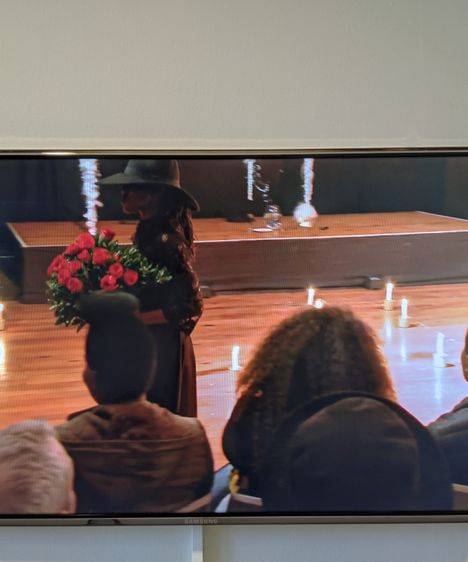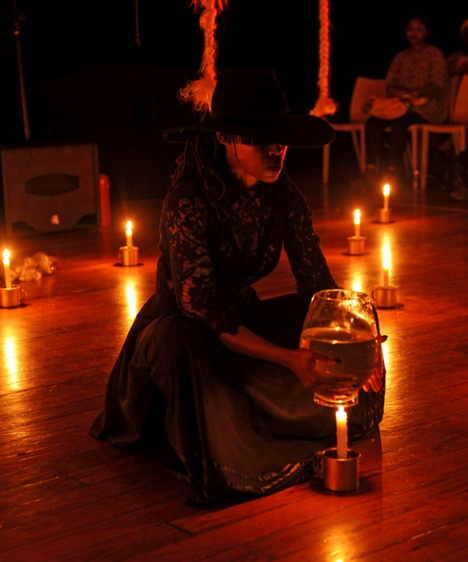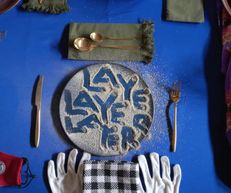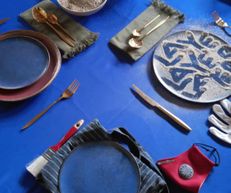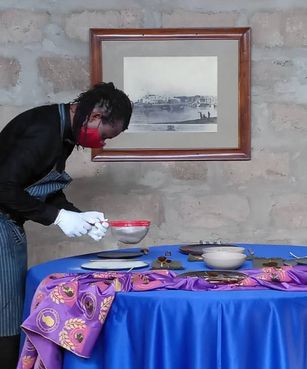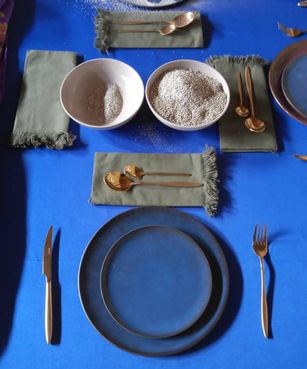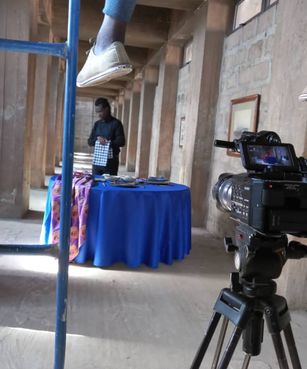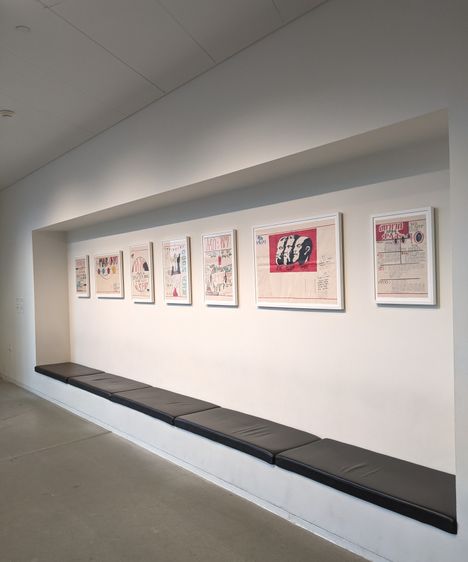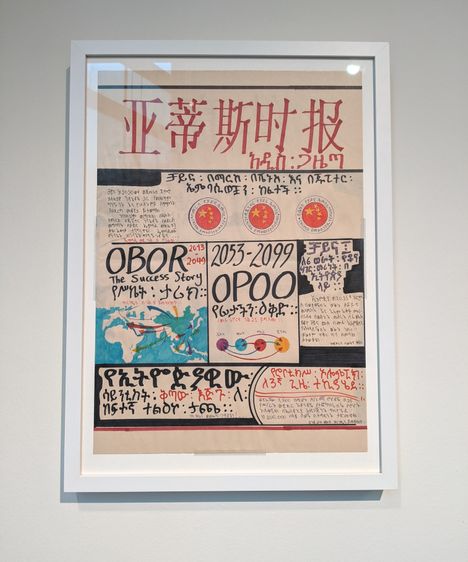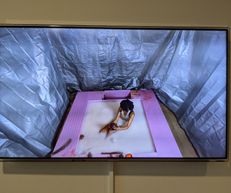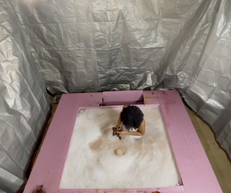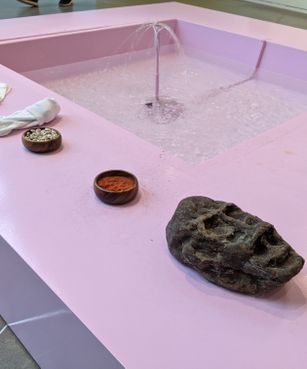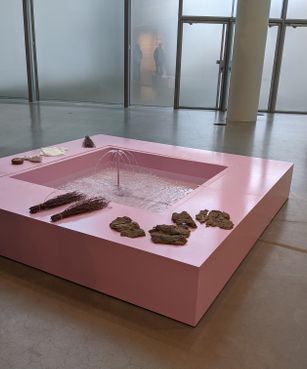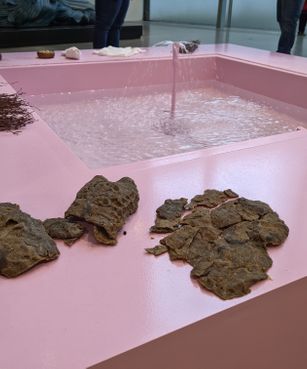PERFORMANCE PROGRAMME
Performance programme for Aros Museum of Modern Art exhibition 'This Is Not Africa' co-curated with SCCA, Tamale Ghana.
Reflections on the performance works in the conversation for the catalogue 'Letters From the Past' with Lotte Løvholm and Mavis Tetteh-Ocloo, curators of the performance programme.
Due to covid the performance programme was cancelled and the performance works were instead incorporated in the exhibition.
SETHEMBILE MZESANE
SIGNAL HER RETURN III (2019)
Cutator LOTTE LØVHOLM: Sethembile is interested in uncovering misogyny and the structures that facilitate it and an important aspect in her performance Signal Her Return III is the prosecution of witches in the 16th and 17th century Europe as well as female genocides today. In Caliban and the Witch: Women, the Body and Primitive Accumulation (2004) philosopher Silvia Federici argues and demonstrates how women's submission is crucial in the formation of the global proletariat as well as the process of colonization. She stresses how unpaid female labor is a historical condition paving the way for a capitalist economy based on wage labor. What is your take on misogyny in relation to the piece?
Curator MAVIS TETTEH-OCLOO: Misogyny is an issue of global concern regardless of race or socio-economic status. For a long time in history before the emergence of feminist movements and even in some parts of the world today, women have in many ways been considered the weaker gender fit only for domestic activities, intellectually incapable in the area of academia and politics and as sexual objects. Modern history has recorded some dark moments of brutality against women, with the most grievous being the witch craze of 16th and 17th century Europe. In 1879 Henrik Ibsen wrote A Doll’s House as a response and reaction against the then socio-cultural system in Europe that treated women as less human; not allowed to vote, or engage in any economic activity, but best suited for the home, as puppets for their husbands.
BERNARD AKOI-JACKSON
... AND BEFORE THEIR FOES, TABLES WERE LAID PLENTY, LAYER UPON LAYER, UPON LAYER... (2021)
Curator MAVIS TETTEH-OCLOO: "Inherent in bureaucracy is the idea of inclusion and exclusion, where one ought to conform to, or meet set requirements, in order to be ushered in. In effect the individual loses or denies the self while attempting to belong to the (colonial, corporate, religious …) establishment. The performance participant’s identity is questioned in the process; identity as constructed by societal standards which is also seen in the act of assigning dress codes. Akoi-Jackson’s performances reflect and question these societal constructions of identity and inclusion.
ROBEL TEMESGEN
ADDIS NEWSPAPER (2014-)
Curator LOTTE LØVHOLM: (...) the starting point for Robel Temesgen’s Addis Gazetta (2014-) was the shutdown of six privately owned newspapers by the Ethiopian Government who did not like the critical news reporting. Many owners, editors and journalists were arrested and prosecuted under an anti-terrorism law and alternative underground newspapers started popping up. Temesgen would make these handwritten newspapers referencing underground publications during dictatorship by reporting social media stories and using satire. He would for instance report on the release from prison of a local journalist adding “we do not know when she will be imprisoned again” or congratulate the government for "winning the election 100%".
Curator MAVIS TETTEH-OCLOO': "Written in Amharic, the artist’s mother-tongue, the newspapers explore the role of printed information in the shaping of democracy. For the exhibition, Temesgen will be presenting a work station where he will engage in editing and producing the newspapers. The audience will be given the opportunity to be witnesses of the production process and at the same time consumers of the news. This brings to mind, how the advent of social media and the camera phone has placed the individual who was once a consumer only of the news at the centre of its production. Individuals record and share incidents, sometimes providing a twist to the story and giving live coverage to others.
BOLATITO ADEREMI-IBITOLA
WHOLE AGAIN (2021)
Curator LOTTE LØVHOLM: In 'Whole Again' Aderemi-Ibitola sculpts figures out of black soap, a type of soap originating from West Africa that gets its dark colour from plant ash. Apart from the material’s geographical connection to Nigeria where Aderemi-Ibitola is from, the work also references Orisha Osun who is the river spirit and goddess of love, femininity, and fertility in Yoruba culture. It is a labour-intensive performance with Aderemi-Ibitola literally sculpting and mending ‘Black bodies’ using water and basic sculpting tools. The work is a way of looking into restoration, particularly in connection to Black pain. Aderemi-Ibitola is interested in the object relation theory of psychoanalyst Melanie Klein who sees destructive behaviour towards those we love and reparation for the damage we have caused to be an essential part of mental health.
